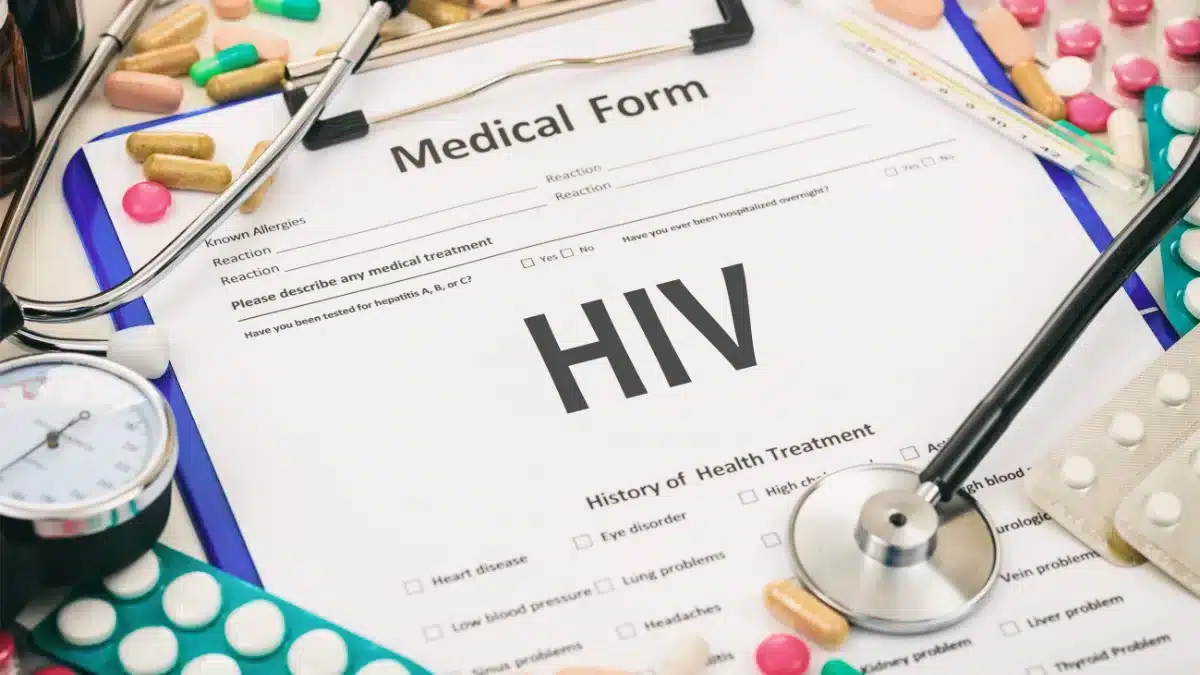Sustaining an Undetectable HIV Viral Load: A Path to Health and Prevention
In recent years, advancements in HIV treatment have provided individuals living with the virus the opportunity to achieve an undetectable viral load.
This has led to significant health benefits and prevention of transmission.
Adhering to Antiretroviral Therapy (ART) and understanding the implications of having an undetectable viral load is crucial for individuals with HIV and their partners.
This article explores the key aspects of achieving and maintaining an undetectable HIV viral load.
The role of Antiretroviral Therapy (ART)
Antiretroviral Therapy, commonly known as ART, is the cornerstone of HIV treatment.
By taking HIV medicine as prescribed, individuals can effectively suppress their viral load.
They often reach an undetectable level within one to six months of starting treatment.
It is essential to emphasize that while ART can suppress the virus, it is not a cure.
HIV remains in the body, and skipping doses can lead to a rapid increase in viral load.
Benefits of having an undetectable viral load
There are multifaceted benefits of undetectable viral.
Health benefits
People with HIV who adhere to their treatment plan and maintain an undetectable viral load can lead long and healthy lives.
Proper management of the virus allows individuals to live without the complications associated with untreated HIV.
Prevention of transmission
One of the groundbreaking concepts associated with having an undetectable viral load is “Undetectable = Untransmittable” (U=U).
Individuals with HIV who take their medication as prescribed and maintain an undetectable viral load will not transmit the virus to their partners through sexual contact.
To know if mosquitoes can spread HIV, read Can Mosquitoes Spread HIV: Debunking the Truth.
This has profound implications for the prevention of new HIV infections.
Preventing perinatal transmission
Pregnant individuals with HIV can significantly lower the risk of transferring the virus to their babies by taking HIV medicine throughout pregnancy, labor, and delivery.
With proper medication adherence and care, the risk of transmission during childbirth can be reduced to 1% or less.
Reducing risk for people who inject drugs
Having a suppressed or undetectable viral load may reduce the risk of HIV transmission for individuals who inject drugs.
However, it is crucial to prioritize safe practices, such as using new equipment for each injection and avoiding needle-sharing.
Maintaining an undetectable viral load

To sustain the benefits of an undetectable viral load, individuals must commit to taking their HIV medicine consistently.
Sustaining an undetectable viral load for at least six months after the initial undetectable result is vital.
Skipping doses, even occasionally, can lead to a resurgence of the virus.
Regular communication with professionals is essential for monitoring viral load levels and addressing any challenges or concerns.
Addressing challenges and seeking alternatives

If an individual’s current HIV medicine regimen does not effectively suppress their viral load, discussing alternative treatment options is crucial.
- Discussion with healthcare provider: Open discussions with your healthcare provider are crucial. They can adjust treatment plans or suggest different HIV medicines that might suit you better
- Regular viral load testing: Frequent viral load testing helps track your progress. If the viral load becomes detectable, your healthcare provider can intervene promptly and adjust the treatment plan accordingly
- Pre-Exposure Prophylaxis (PrEP): For individuals with a detectable viral load or inconsistent medication intake, PrEP for the HIV-negative partner can provide an additional layer of protection against transmission
- Post-Exposure Prophylaxis (PEP): In cases where possible exposure to HIV occurs, such as a condom break during sex, PEP can be considered for the potentially exposed partner as a preventive measure against HIV transmission
Conclusion
Antiretroviral Therapy plays a key role in suppressing the virus, offering both health benefits for individuals with HIV and preventing transmission to their partners.
The concept of “Undetectable = Untransmittable” (U=U) highlights the groundbreaking idea that maintaining an undetectable viral load prevents HIV transmission through sexual contact.
For pregnant individuals with HIV, proper medication adherence significantly reduces the risk of perinatal transmission.
Individuals who inject drugs can also lower their risk by maintaining a suppressed viral load, coupled with safe practices.
Consistency in taking HIV medicine is essential, as skipping doses can lead to a resurgence of the virus.
If HIV remains detectable, exploring alternative options such as Pre-Exposure Prophylaxis (PrEP) and Post-Exposure Prophylaxis (PEP) can be beneficial.
By understanding and embracing these aspects, individuals with HIV can lead healthy lives and contribute to the prevention of new infections.
Frequently Asked Questions
Can I catch HIV from someone undetectable?
No, the risk of HIV transmission from someone undetectable is extremely low. When a person with HIV is undetectable, it means that the virus in their blood is at a level where it cannot be detected. Research has shown that an undetectable viral load reduces the risk of transmission.
Can an undetectable person donate blood?
In many places, an undetectable person may still be restricted from donating blood, as blood donation policies often prioritize the safety of the blood supply. However, policies can vary by region and may change over time. It is essential to check with local blood donation centers on eligibility criteria.
How long can you stay HIV undetectable?
Staying HIV undetectable is an ongoing process that requires consistent adherence to Antiretroviral Therapy (ART). With proper treatment and adherence, individuals can maintain an undetectable viral load for many years, allowing them to lead healthy lives. However, it is crucial to continue taking medications as prescribed.
Can you be undetectable without treatment?
No, achieving an undetectable viral load typically requires Antiretroviral Therapy (ART). These medications suppress the replication of HIV, reducing the viral load to undetectable levels. While an undetectable viral load does not cure HIV, it helps manage the infection and reduce the risk of transmission to others.
WowRx uses only high-quality sources while writing our articles. Please read our content information policy to know more about how we keep our content reliable and trustworthy.






